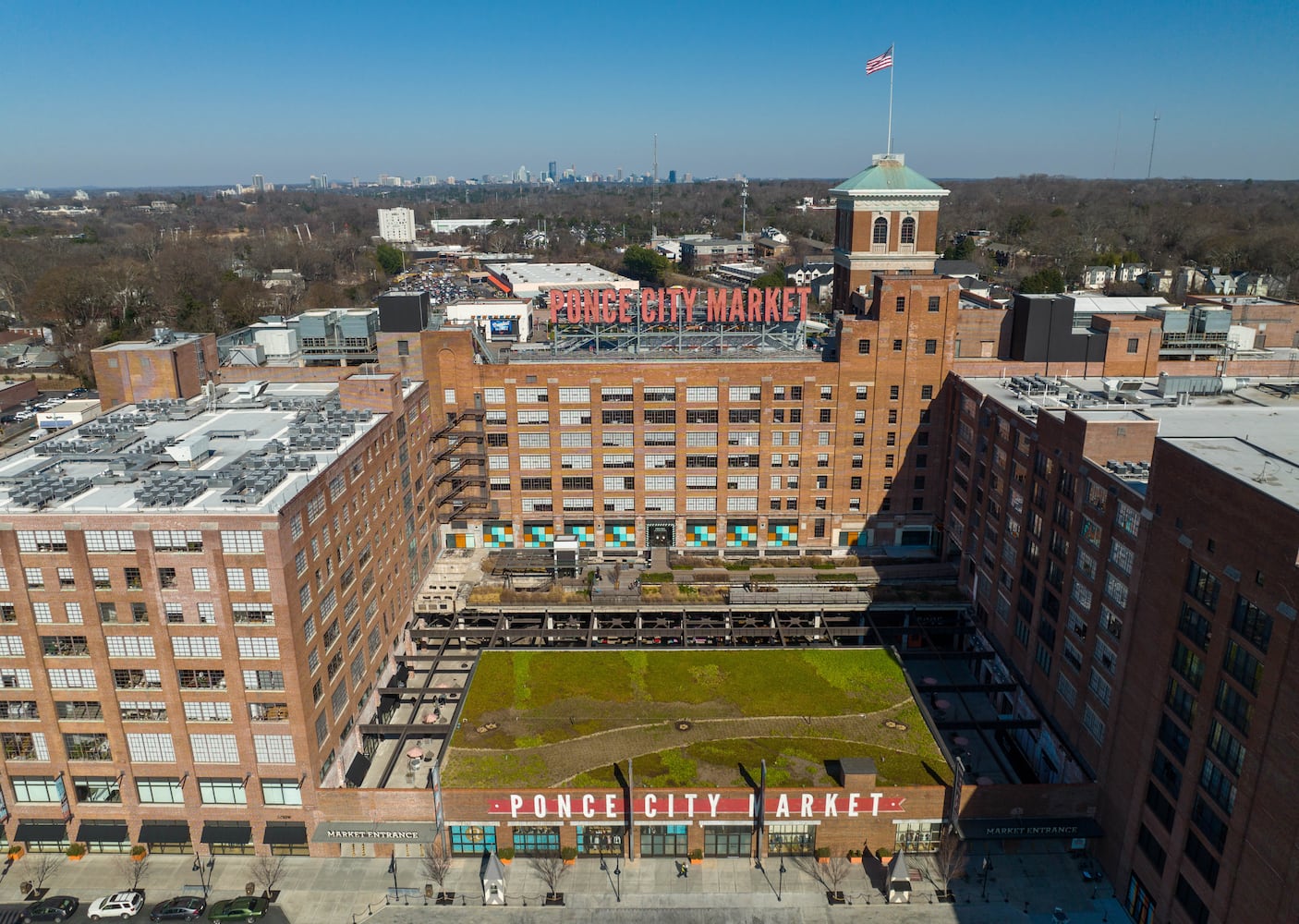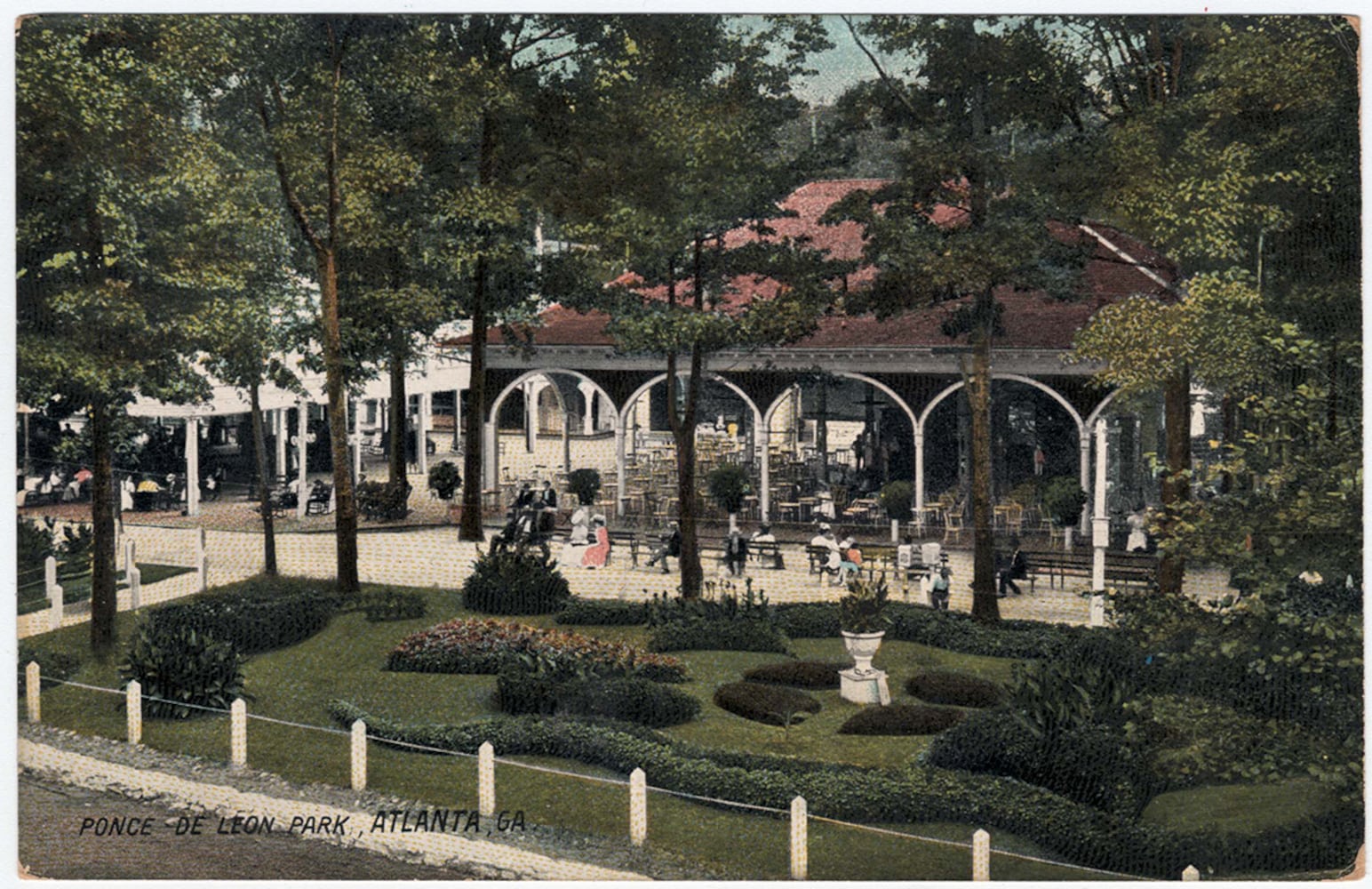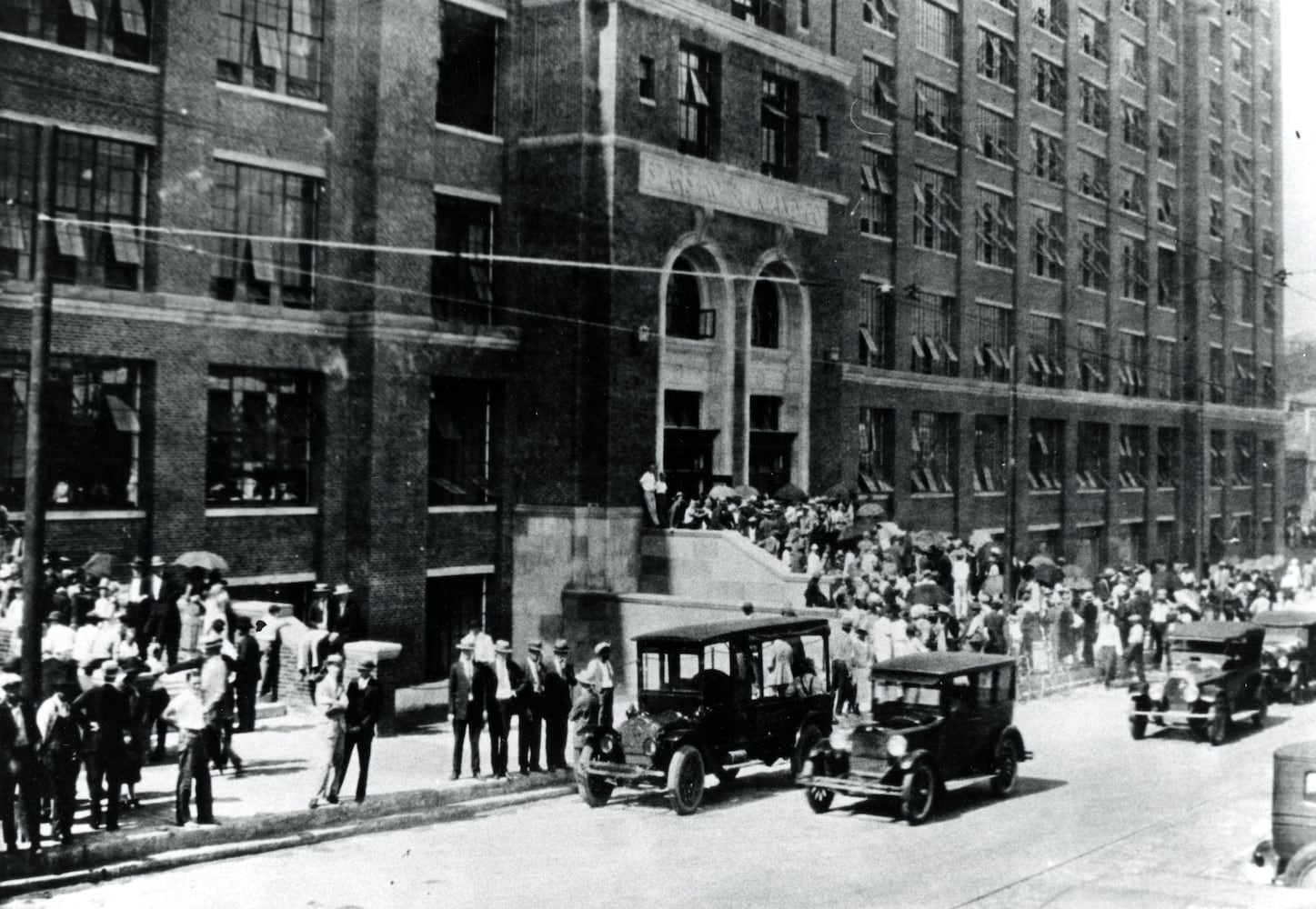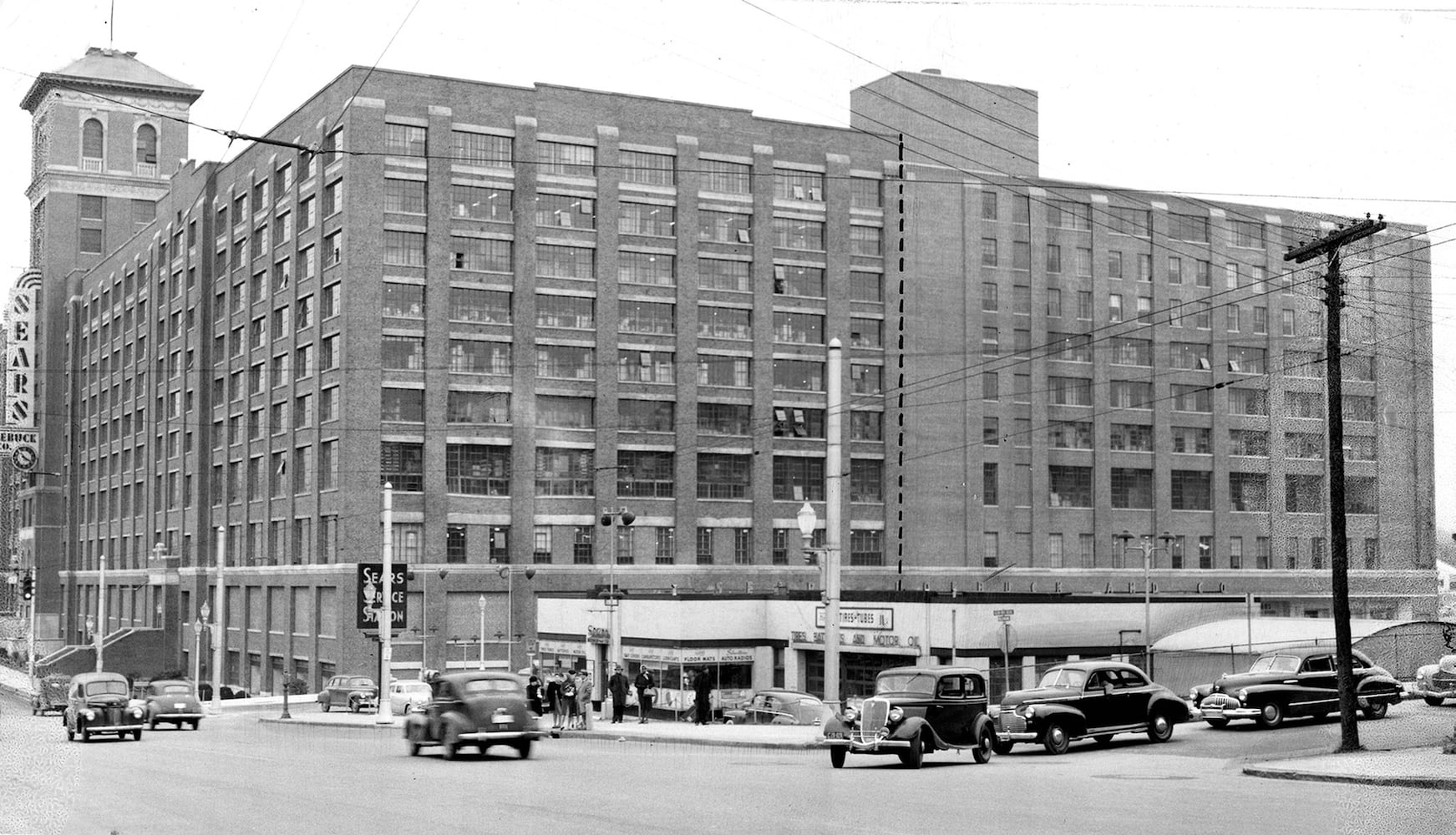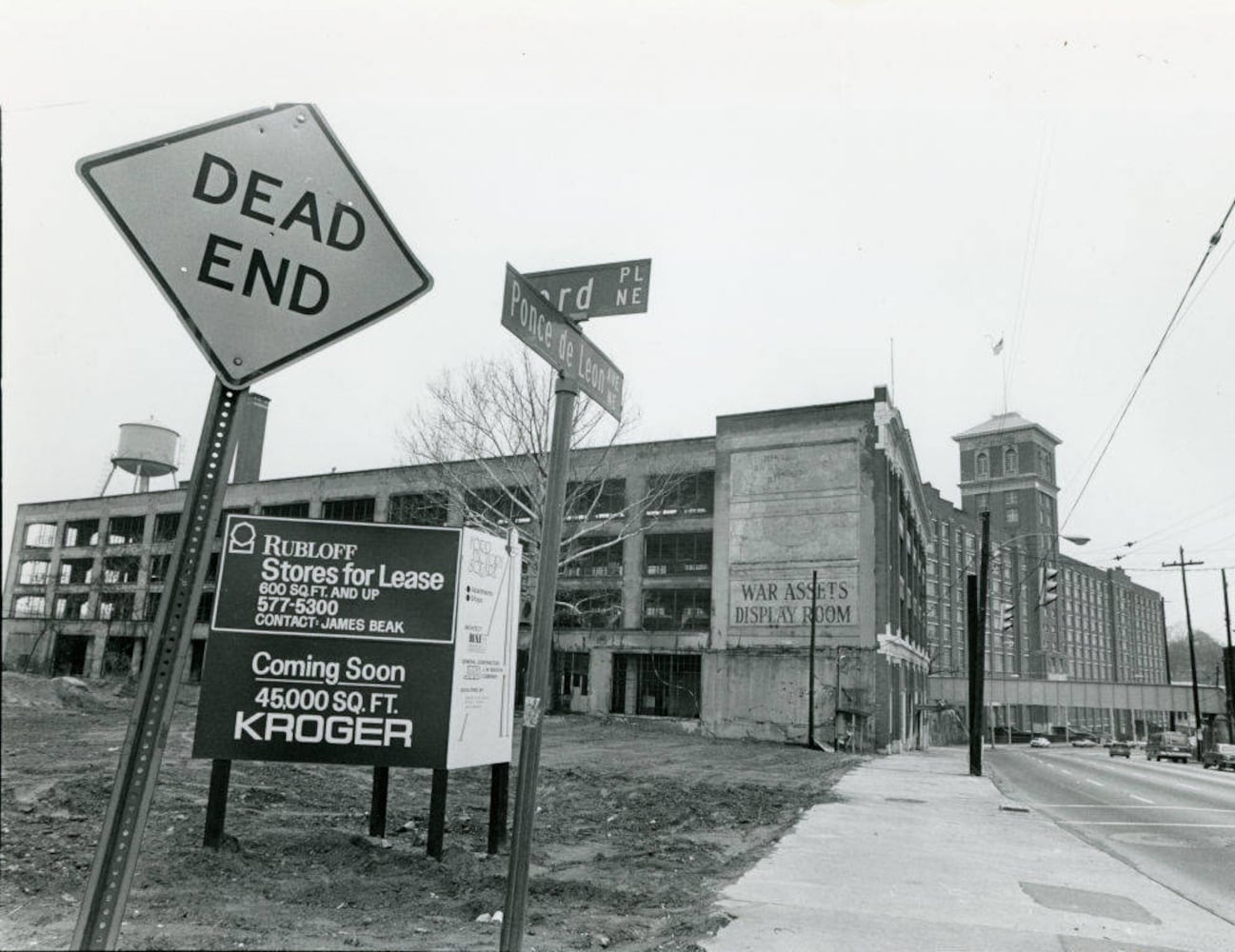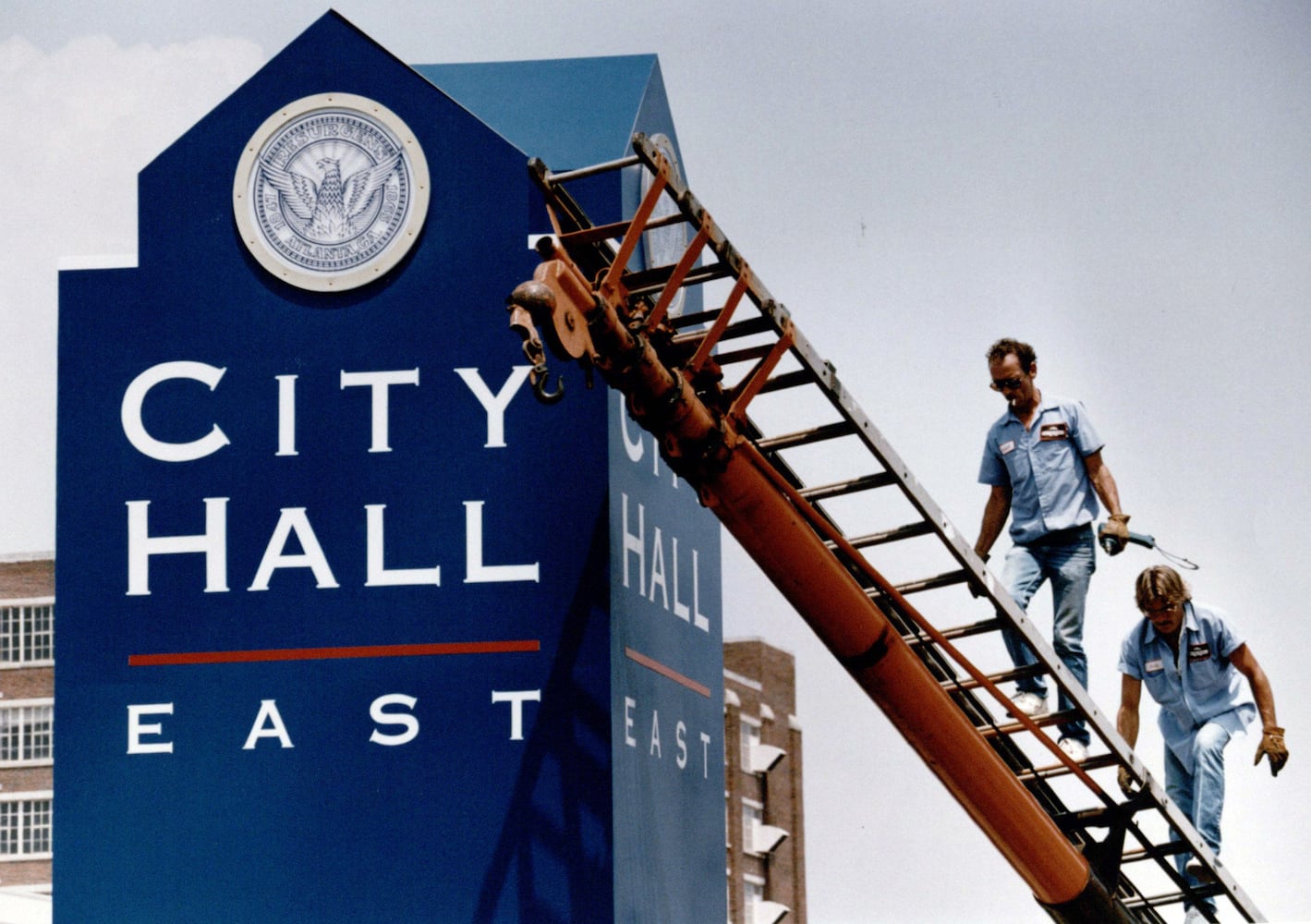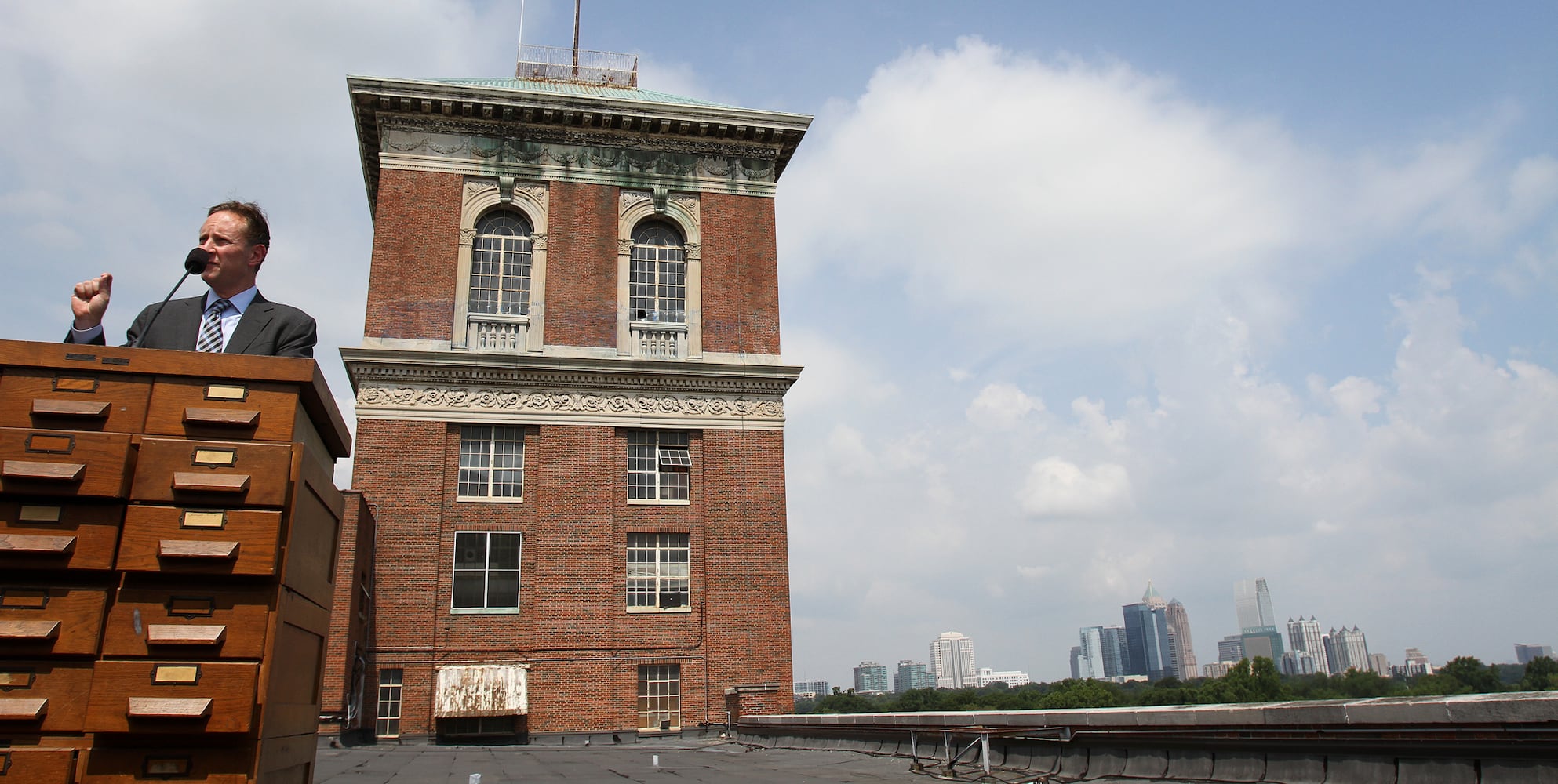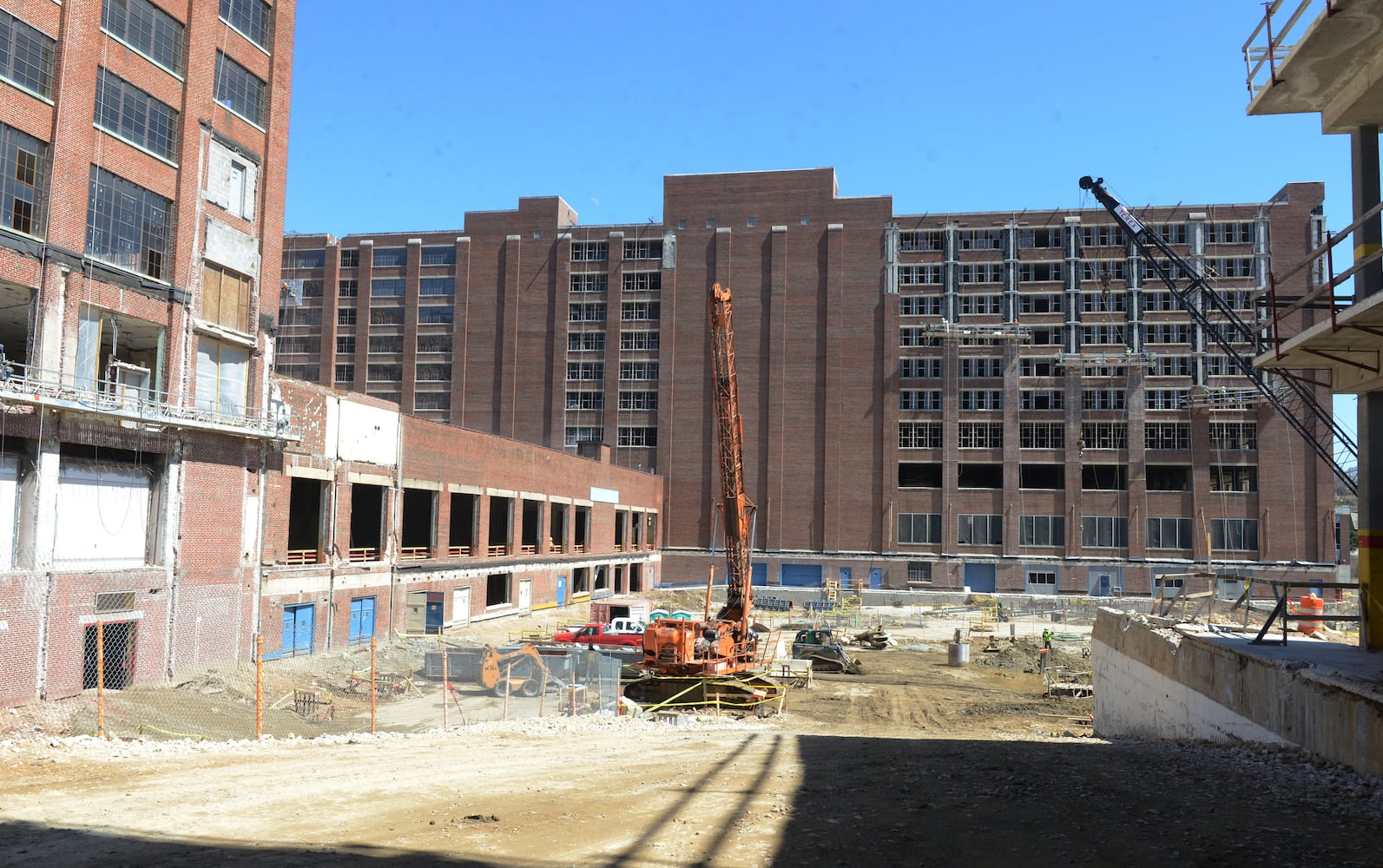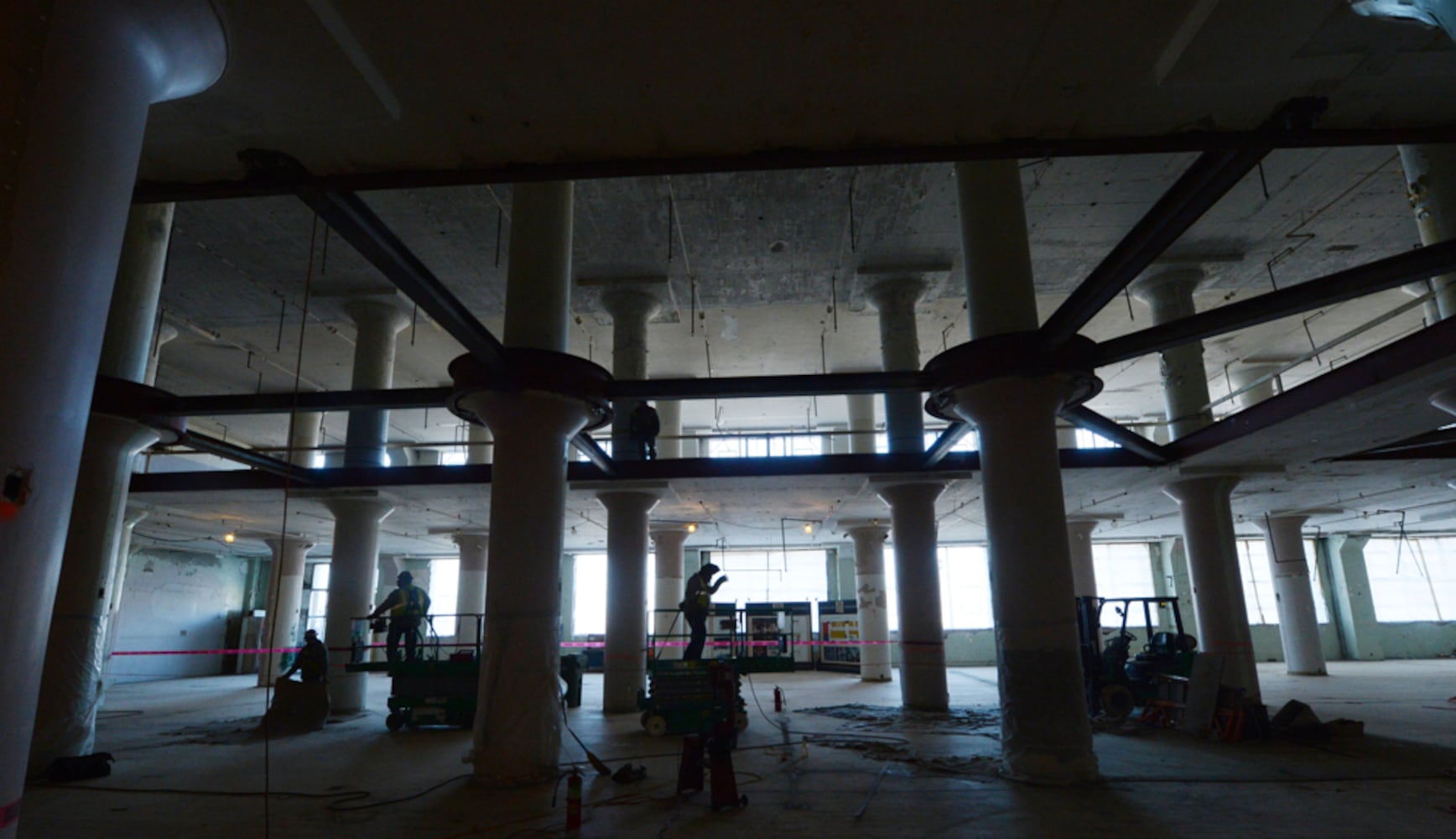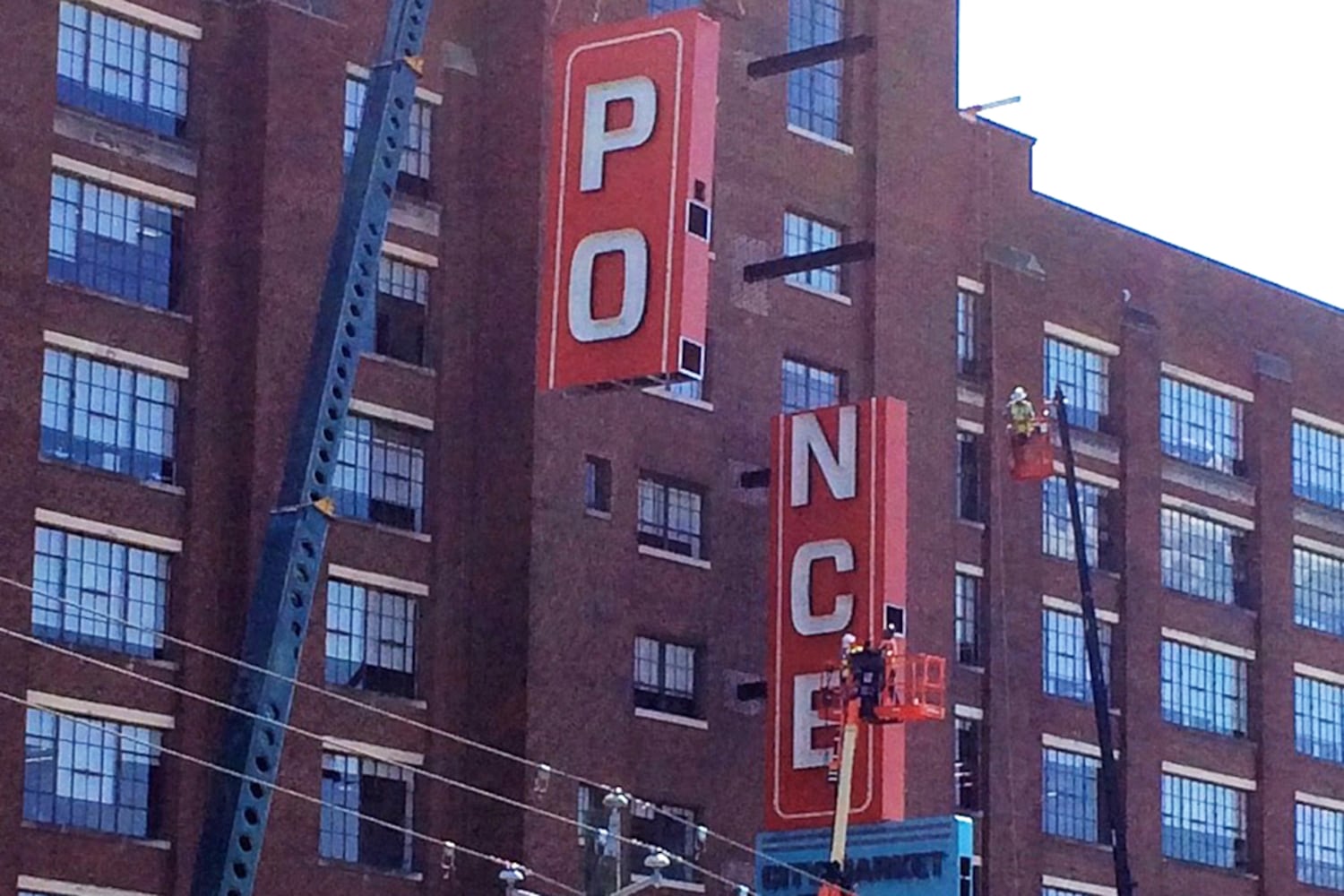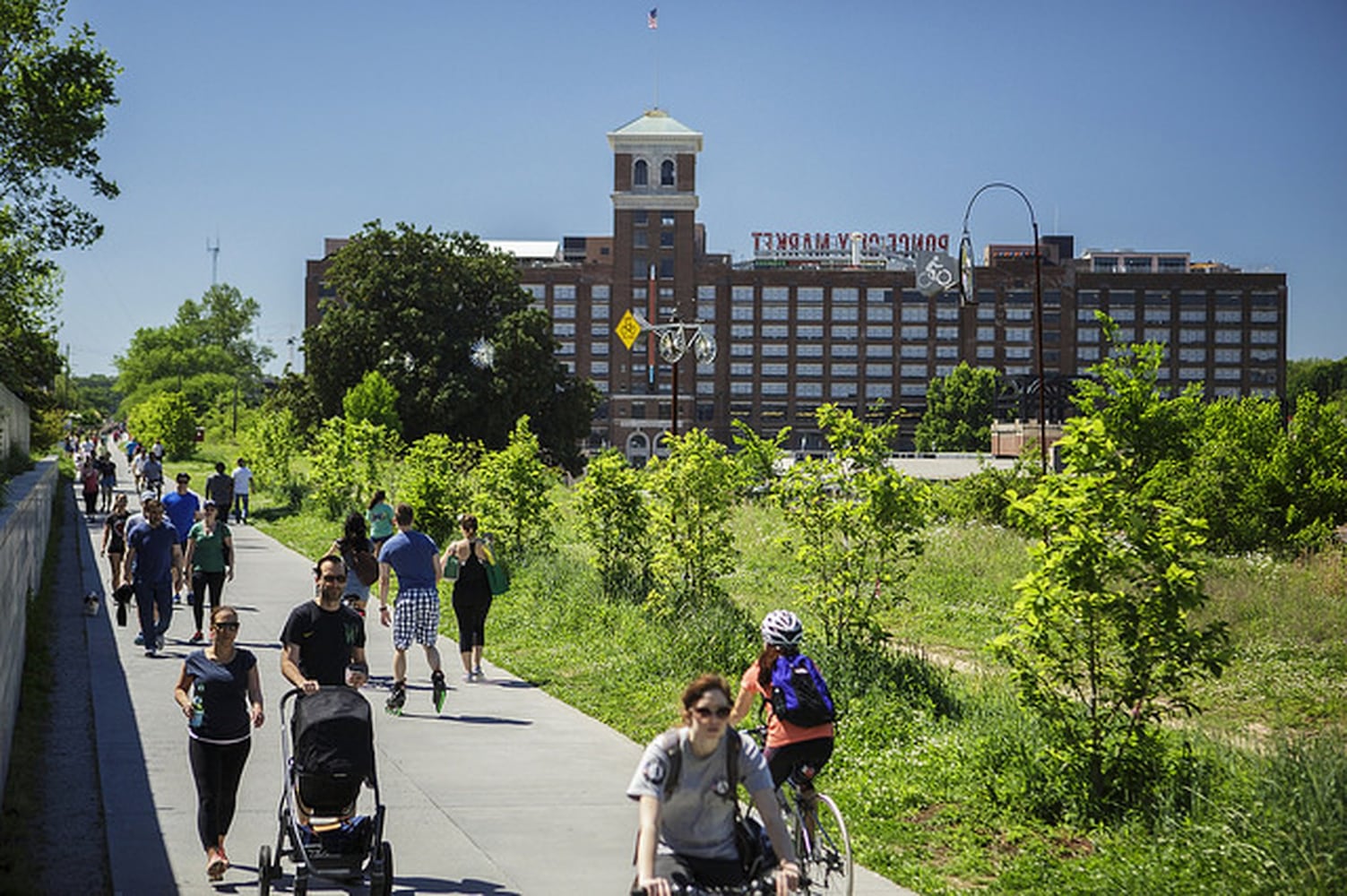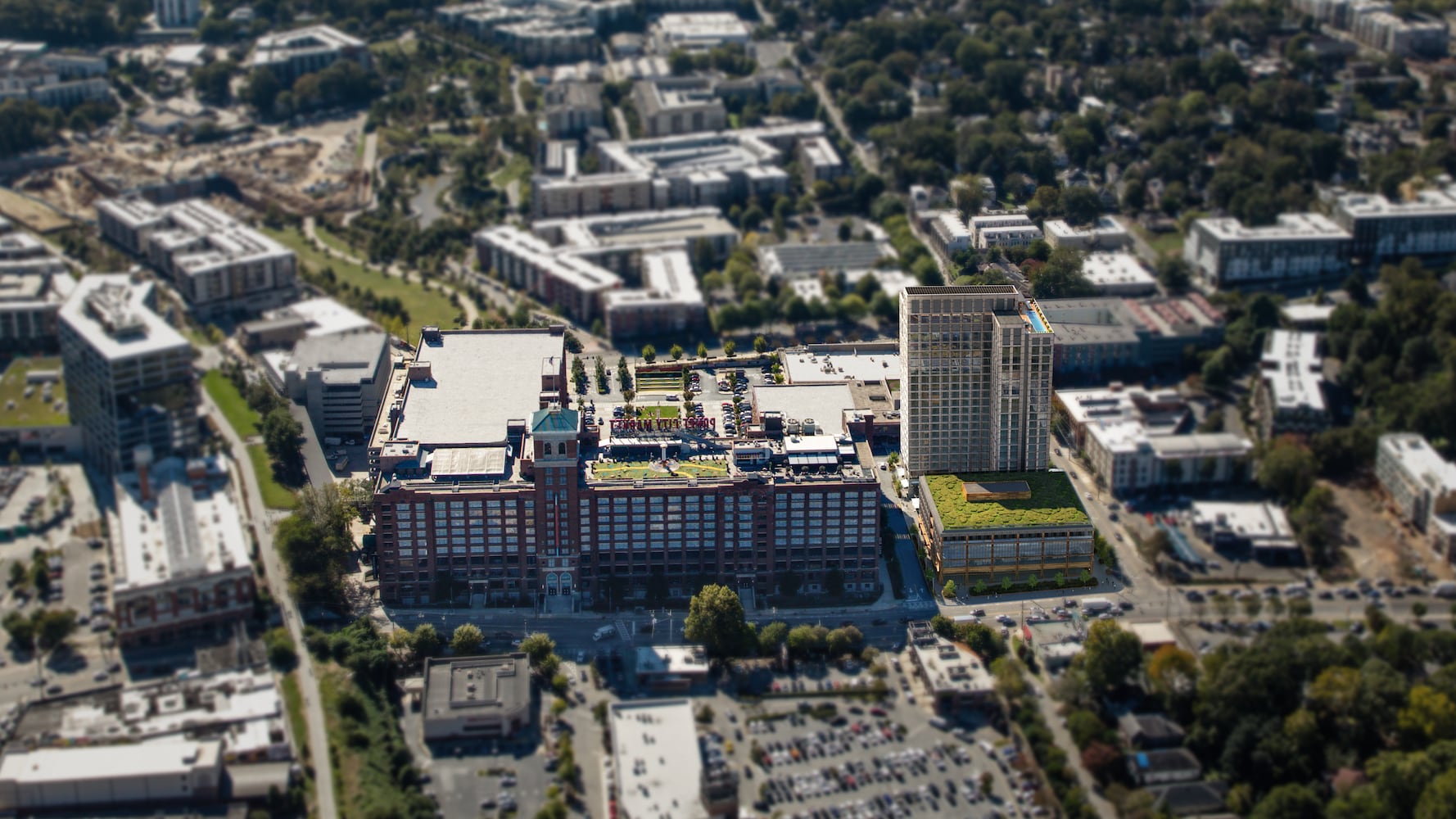The developer of Ponce City Market has decided against seeking property tax breaks for the second phase of the popular Atlanta Beltline attraction after struggling to garner support from a Fulton County agency that is the gatekeeper for these types of incentives.
The move is a setback for the developer, Jamestown Properties, and it highlights how the political ground has shifted at the Development Authority of Fulton County (DAFC) that for years has been seen as a rubberstamp for developers seeking tax breaks to support their projects.
Jamestown said Monday it would not seek an incentive estimated at about $5.4 million as the proposal apparently did not have the support needed to pass. It was the second time the company abandoned plans for a tax break for the project after withdrawing a request for an $8 million incentive in November.
In a statement, Jamestown said it would move forward with its plans to build a second phase without the incentive, though some details of the project will likely change. Even as they were announcing the withdrawal of their tax break request on Monday, Jamestown officials were claiming that local governments were giving up a chance to earn more tax revenue.
“Without public-private partnership, the project will look different, but it will still include affordable housing and other community benefits—of which we are proud to bring to the neighborhood,” Jamestown spokeswoman Lisa Serbaniewicz said in a statement.
DAFC has been criticized for years for granting lucrative tax breaks for projects in well-off parts of Fulton while asking for little public benefit in return. But the authority has undergone an overhaul in the wake of reporting by The Atlanta Journal-Constitution last year that revealed a culture of loose financial oversight under former leadership.
Five new board members joined last year and the body has taken a more skeptical view of developer requests, deadlocking on several. The Ponce City Market proposal, however, is the highest profile project to fail to gain board support.
Jamestown had been expected to appear at DAFC’s Tuesday board meeting, but the proposal for Ponce City Market was not on an early draft meeting agenda.
Critics told the AJC in recent weeks the smaller proposed tax break was unnecessary for an expansion of one of the city’s hottest projects.
Ponce City Market had received incentives for historic preservation that dramatically reduced the project’s tax bill since Jamestown bought and renovated the project a decade ago.
Fulton County property tax records show the complex was appraised by the county at $40 million in 2021, a fraction of the value it likely would fetch on the open market. The tax bill was about $242,000 in 2021, according to online records maintained by the Fulton County Tax Commissioner.
“They own a billion-dollar asset and they have the nerve to ask for another tax break,” said Julian Bene, a former board member of Invest Atlanta, the city’s economic development agency and a frequent critic of DAFC.
Credit: Jamestown
Credit: Jamestown
Jamestown initially proposed a 163-unit apartment tower, an 85,000-square-foot, timber-framed office building and about 23,000 square feet of new retail space on the North Avenue side of the complex. The second phase also proposed plans for a “hospitality living tower,” essentially a 405-unit residential high-rise with hotel-like services for short-term and extended stays.
Among the public benefits outlined in the company’s initial proposal were 16 apartments with subsidized rents reserved for people making 60% of the area median income, or about $52,000 for a family of four. That threshold of affordable housing is a requirement under city zoning.
Jamestown previously said another eight units would have been reserved at 120% AMI or about $103,000 in annual income for a family of four. Among other community benefits promised, Jamestown said last month it would donate $1.5 million for a “legacy resident retention program,” an increase of $500,000 from its earlier proposal.
In its statement, Jamestown said it is “prepared to go above and beyond what is required to expand affordable housing opportunities and create highly sustainable development with positive regional economic impacts in alignment with public policy goals.”
Credit: HYOSUB SHIN / AJC
Credit: HYOSUB SHIN / AJC
Jamestown acquired the hulking former Sears warehouse from the city of Atlanta a decade ago. At the time, the building was known as City Hall East. Jamestown converted it into a thriving mix of apartments, shops, restaurants and offices popular with tech firms.
The Beltline is a 22-mile loop of trails, parks and future transit around the city core that’s become a magnet for redevelopment. Ponce City Market is the highest-profile project on the Beltline and helped kick off hundreds of millions of dollars in development on the eastside trail.
Critics say the proposed DAFC tax break, known as an abatement, flies in the face of how funding for the Beltline was envisioned. That’s because the Beltline is supposed to pay for itself using future tax revenue generated by new development and appreciating property values.
When the city started the Beltline, it created a special zone known as a Tax Allocation District or TAD that’s designed to take long-term gains in property values triggered by new development and invest those dollars into the trail, parks, future transit and affordable housing.
Credit: HYOSUB SHIN / AJC
Credit: HYOSUB SHIN / AJC
Atlanta City Council created a controversial “special services district” that raised taxes on commercial properties and apartment buildings near the Beltline to make up for financial shortages in the Beltline TAD. One justification for the tax hike was to make up for development authority tax breaks.
Dan Immergluck, a professor and affordable housing expert at Georgia State University, said more affordable housing is needed on the Beltline. But Jamestown’s proposal provided little more than what is required under city code and didn’t need the subsidy.
The Beltline would be better off receiving the full amount of tax revenue from Ponce City Market’s expansion and deploying those dollars where it’s needed, he said.
“What was the whole point of the Beltline TAD? It was to capture that value,” Immergluck said.
Credit: HYOSUB SHIN / AJC
Credit: HYOSUB SHIN / AJC
Our Reporting
Investigations by The Atlanta Journal-Constitution last year revealed a culture of loose financial oversight at the Development Authority of Fulton County. The AJC also showed how the agency granted hundreds of millions of dollars in tax breaks to projects in highly desirable parts of Fulton that critics said likely did not need the financial support. Since June of last year, the new DAFC board has enacted new policies to tighten financial controls and taken a more skeptical view of incentive proposals.
About the Author
Keep Reading
The Latest
Featured
